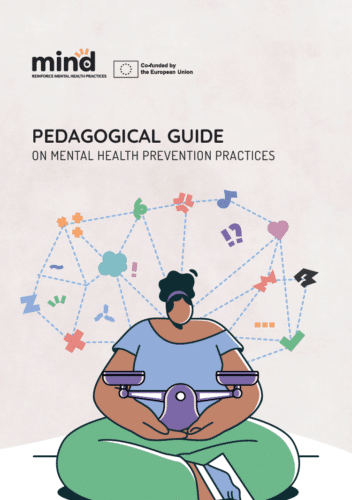Guide: Mental health prevention practices
As part of the Erasmus+ MIND project, a pedagogical guide was created to help professionals prevent mental health challenges among young people. This is especially important in the context of international mobility.
The guide follows a clear and accessible approach. It helps professionals identify signs of psychological distress and respond with appropriate strategies. Importantly, it avoids entering the clinical or diagnostic field.
In addition, the guide is available in six languages. It offers practical tools that are simple to use and easy to adapt. These resources can be integrated into daily practice. As a result, professionals can better understand common mental health issues and respond with care and confidence.
Key topics covered in the guide
The guide focuses on several essential pillars of mental health prevention:
- Identifying signs of psychological distress: Recognising symptoms linked to anxiety, depression, addictions, eating or behavioural disorders.
- Understanding without diagnosing: Observing young people attentively, creating a safe space, and listening actively.
- Applying the CARES method: A simple five-step approach: Connect, Actively listen, Reassure, Encourage, and Share resources.
- Responding in crisis situations: Adopting the right actions in the event of urgent or worrying situations.
- Anticipating mobility-related risks: Preparing young people before departure, supporting them during their stay, and guiding them upon return.
A guide to better support and prevent risk situations
This guide is intended for anyone in direct contact with young people. It helps improve the quality of support offered and provides tools that are simple, transferable, and adaptable to various contexts.
A second complementary guide is also available. It focuses on the active promotion of mental well-being.
MIND
Le projet MIND vise à renforcer la capacité des professionnels de l’EFP à mettre en œuvre des meilleurs pratiques en matière de santé mentale et à promouvoir le bien-être socio émotionnel des apprenants de l’EFP en mobilité internationale.

